CM. Relatório Global de Educação do Rubin
Quer queiramos ou não, crianças estão crescendo em um ambiente tecnológico, e saber como fazer o melhor uso de boa tecnologia é uma parte crítica de prepará-los para suas vidas futuras. habilidades do século 21 importantes, tais como a resolução de problemas, comunicação e criatividade também pode ser melhorada com o uso de grande tecnologia. Este mês o nosso professores globais superiores share their top tips on which edtech tools have dramatically supported and improved learning in our teachers’ classrooms around the world. Jim Tuscano’s personal criteria in selecting his top tech choices includes tech that supports “independent and self-directed learning, active, creative and collaborative learning, as well as critical thinking, provides intuitive and user-friendly interface and is accessible to all learners.” In making his selections, Adam Steiner notes that “whichever device you bring into your classroom, em última análise, é tudo sobre o conteúdo,” and “the good news is that great new educational Virtual Reality content is coming out every day.” When sharing the good, o mal, ea melhor, Elisa Guerra Cruz notes that “teaching in the Fourth industrial revolution takes passion and initiative, and along with the challenges come the exhilarating opportunities.”
“Um verdadeiro cidadão global, na minha opinião, é um guardião humana de todas as pessoas na nossa aldeia global, e não só do país que ele ou ela vive em,” says Professor há Aharoni in Israel, que falou com a gente este mês. Ada is the founding President of the International Forum for the Literature and Culture of Peace (IFLAC). She believes that “words, comunicação, literatura e as artes, pode promover a paz, tolerância e harmonia, and bring about a change.” While “education is the most important element in developing, nutrir e propagação de pacificação,” she says this education “should be given to the teachers and the parents too.”
And that’s a great segue into our interview with Mali-born New York based singer-songwriter Awa Sangho, a rising star on the global music scene. Criado por uma avó que a encorajou a definir suas vistas altas, ela fez exatamente isso, superação de dificuldades e desafios em sua juventude para encontrar o sucesso como cantor, percussionista, e compositor. Ela é uma ativista apaixonada por educar jovens e mulheres na África Ocidental, condenando a prática da mutilação genital feminina. “Quem eu sou representa a África, toda a África," ela diz, claramente orgulhoso de seu papel auto-proclamado como embaixador cultural. Em sua entrevista na busca Global para a Educação, she speaks about the power of music as a universal language, e porque a educação pode “abrir qualquer porta nesta terra.”
De acordo com Charles Fadel, fundador do Centro de Redesign Curriculum, “new and more innovative knowledge maps are now needed to help us navigate the complexities of our expanding landscape of knowledge.” Fadel’s organization has been producing new knowledge maps that redesign knowledge standards from the ground up. In our interview with Fadel this month, he notes that “understanding the interrelatedness of knowledge areas will help to uncover a logical and effective progression for learning that achieves deep understanding.”
Making quality health care available for all people is the UN’s Sustainable Development Goal No. 3 – a goal that global leaders seek to achieve by 2030. In our interview with Kara Hanson, Professor do Sistema de Saúde Economia na London School of Hygiene & Remédio Tropical, she discusses two main challenges for healthcare in low and middle-income countries (LMICs). O primeiro desafio é o “crescente carga de doenças não transmissíveis (DNT) em LMICs.”Ela observa que“mais da metade da carga de doenças nos países de renda média-baixa é devido a doenças não transmissíveis, e até mesmo nos países de renda mais baixa, NCDs are responsible for one-third of the disease burden.” Hanson, along with our Millennnial bloggers, weigh in this month to discuss the problems and offer strategies to achieve Universal Healthcare coverage for all people. Hanson discusses policies such as “taxation of unhealthy foods and modification of urban environments to facilitate physical activity.” Additionally, she stresses that more focus is needed on health services for conditions like hypertension and diabetes, “that require lifelong management.” Bonnie Chiu explains why she believes that “impact investing is the key to funding universal access to healthcare.” Jacob Navarette focuses on the challenges faced in the United States and recommends “broadening taxation and reducing spending” as a way to balance the books, while Dominique Dryding in South Africa asks us to consider health alternatives which may already exist and which are trusted by significant proportions of populations.” She notes that “given a legitimate platform, o custo dos cuidados de saúde pode diminuir porque haveria uma diminuição da prevalência de doenças evitáveis (como a diabetes tipo II), ea pressão do sistema formal de saúde iria diminuir como resultado “.
(As fotos são cortesia de CMRubinWorld)
C. M. Rubin
Junte-se a mim e líderes de renome mundial, incluindo Sir Michael Barber (Reino Unido), Dr. Michael Bloco (EUA), Dr. Leon Botstein (EUA), Professor Clay Christensen (EUA), Dr. Linda, Darling-Hammond (EUA), Dr. MadhavChavan (Índia), Charles Fadel (EUA), Professor Michael Fullan (Canadá), Professor Howard Gardner (EUA), Professor Andy Hargreaves (EUA), Professor Yvonne Hellman (Holanda), Professor Kristin Helstad (Noruega), Jean Hendrickson (EUA), Professor Rose Hipkins (Nova Zelândia), Professor Cornelia Hoogland (Canadá), Honrosa Jeff Johnson (Canadá), Senhora. Chantal Kaufmann (Bélgica), Dr. EijaKauppinen (Finlândia), Secretário TapioKosunen Estado (Finlândia), Professor Dominique Lafontaine (Bélgica), Professor Hugh Lauder (Reino Unido), Senhor Ken Macdonald (Reino Unido), Professor Geoff Mestres (Austrália), Professor Barry McGaw (Austrália), Shiv Nadar (Índia), Professor R. Natarajan (Índia), Dr. PAK NG (Cingapura), Dr. Denise Papa (US), Sridhar Rajagopalan (Índia), Dr. Diane Ravitch (EUA), Richard Wilson Riley (EUA), Sir Ken Robinson (Reino Unido), Professor Pasi Sahlberg (Finlândia), Professor Manabu Sato (Japão), Andreas Schleicher (PISA, OCDE), Dr. Anthony Seldon (Reino Unido), Dr. David Shaffer (EUA), Dr. Kirsten Immersive Are (Noruega), Chanceler Stephen Spahn (EUA), Yves Theze (LyceeFrancais EUA), Professor Charles Ungerleider (Canadá), Professor Tony Wagner (EUA), Sir David Watson (Reino Unido), Professor Dylan Wiliam (Reino Unido), Dr. Mark Wormald (Reino Unido), Professor Theo Wubbels (Holanda), Professor Michael Young (Reino Unido), e Professor Minxuan Zhang (China) como eles exploram as grandes questões da educação imagem que todas as nações enfrentam hoje.
A Pesquisa Global para Educação Comunitária Página
C. M. Rubin é o autor de duas séries on-line lido pelo qual ela recebeu uma 2011 Upton Sinclair prêmio, "The Search Global pela Educação" e "Como vamos ler?"Ela também é o autor de três livros mais vendidos, Incluindo The Real Alice no País das Maravilhas, é o editor de CMRubinWorld e é um Disruptor Fundação Fellow.
Siga C. M. Rubin no Twitter: www.twitter.com/@cmrubinworld

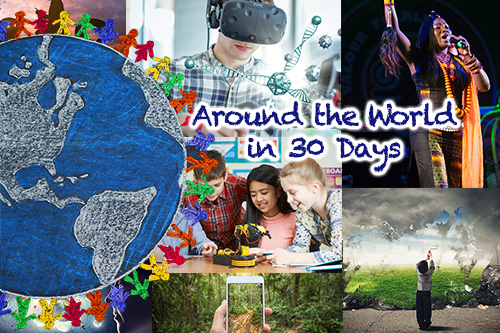
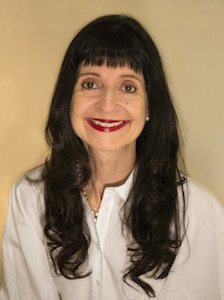
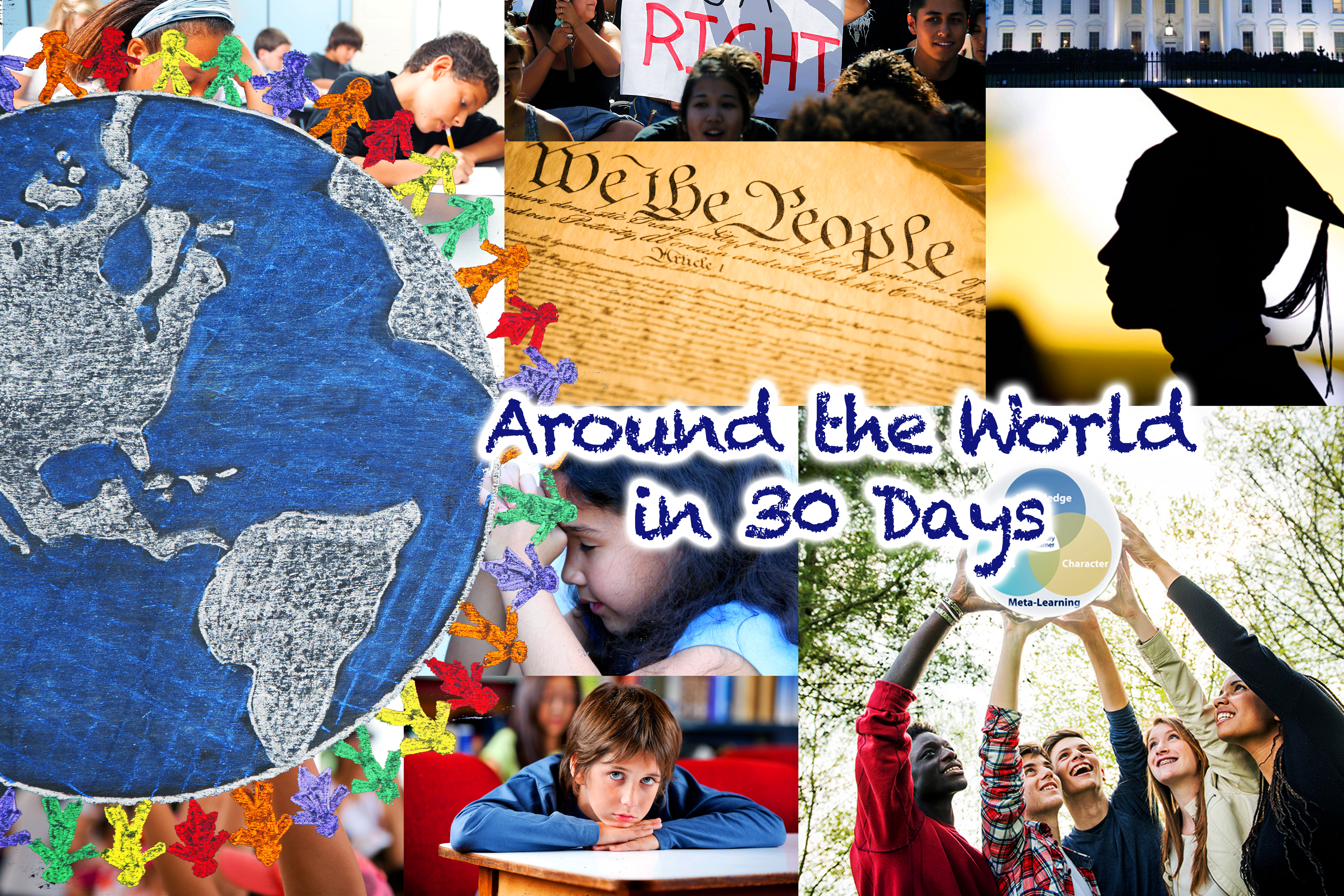
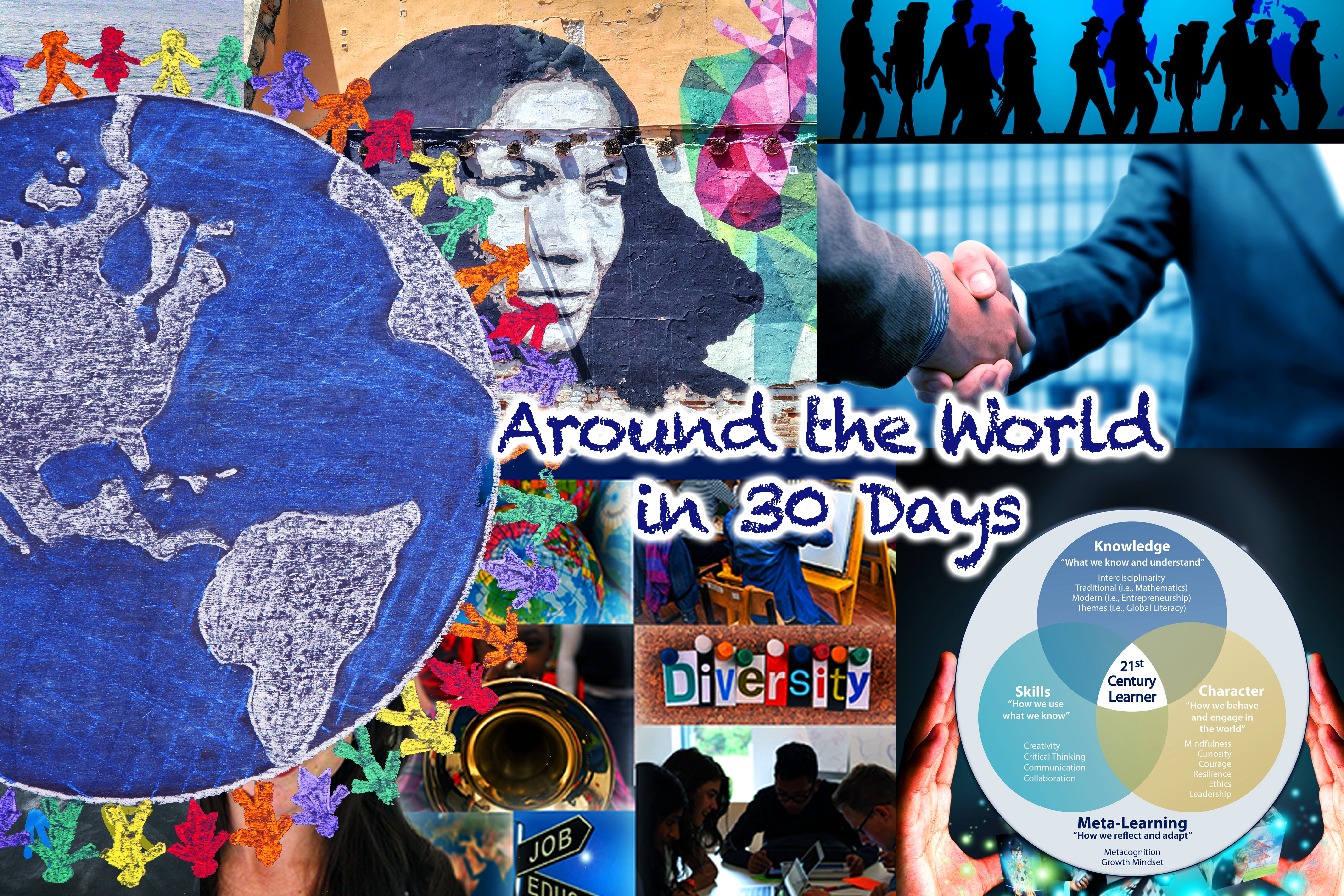
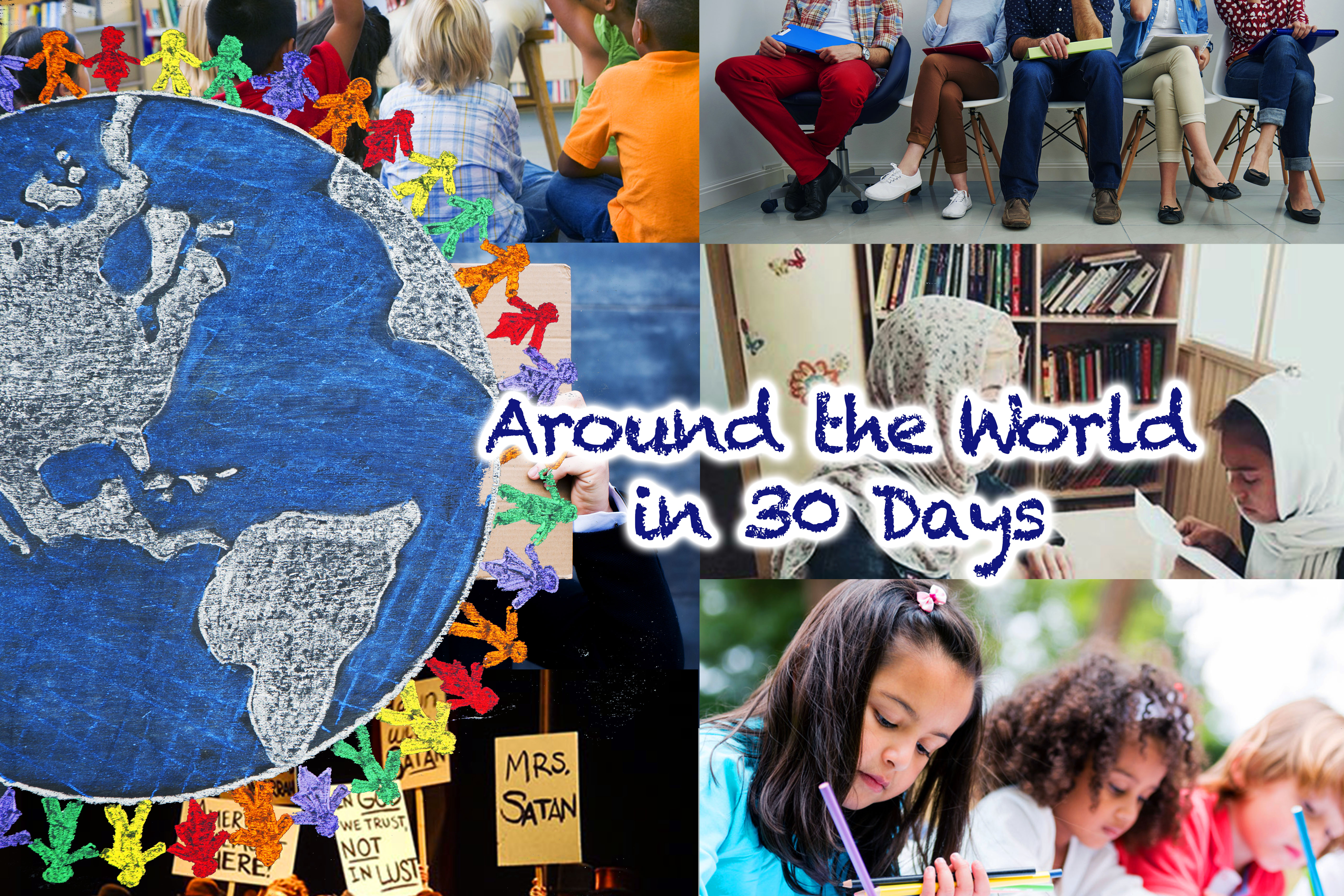
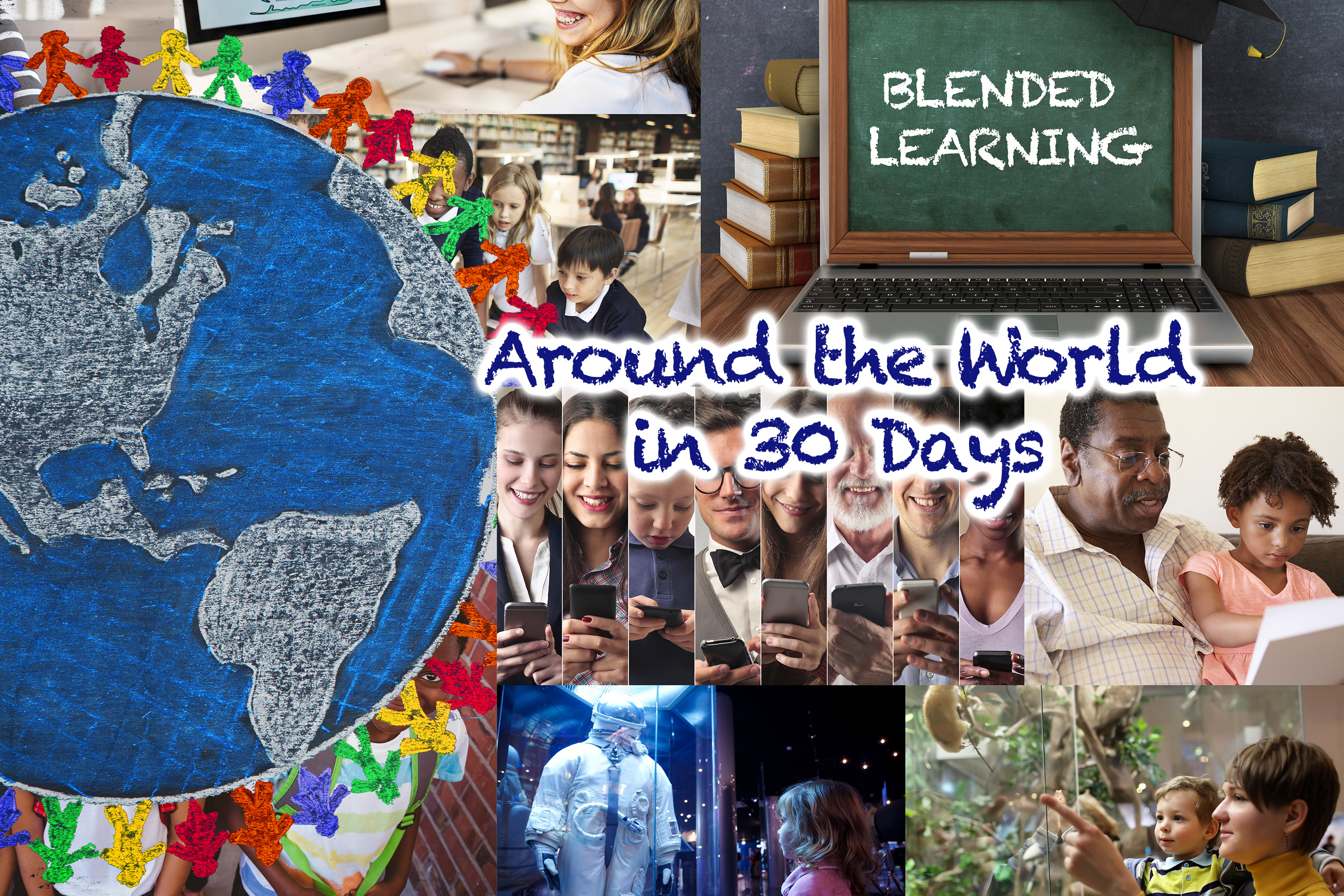
Comentários Recentes